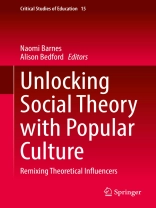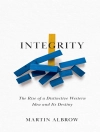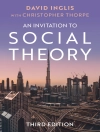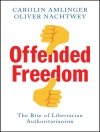This book demonstrates how pop culture examples can be used to demystify complex social theory. It provides tangible, metaphorical examples that shows how it is possible to ‘do philosophy’ rather than subscribe to a theorist by showing that each theorist intersects and overlaps with others.
The book is embedded in the literary theory that tapping into background knowledge is a key step in helping people engage with new and difficult texts. It also acknowledges the important role of popular culture in developing comprehension.
Using a choose your own adventure structure, this book not only shows students of social theory how various theories can be applied but also reveals the multitude of possible pathways theory provides for comprehending society.
Содержание
Chapter 1. Remixing Influencers: Academics reading and writing about philosophy and
pop culture.- Chapter 2. When Violent Delights Meet Revolutionary Ends: Westworld and Marxism.- Chapter 3. The Circle of Hegemony.- Chapter 4. Where the Truth Lies: Peirce Through the Lens of The Third Man.- Chapter 5. Playing Language Games with BB8.- Chapter 6. The Years and Years of Late Modernity: Ulrich Beck and Risk Society.- Chapter 7. Orange is the New Other.- Chapter 8. “Down here, it’s our time”: Bronfenbrenner’s Ecological Systems and The Goonies.- Chapter 9. Choose Your Driver: How Super Mario Kart helps explain Bourdieusian sociology.- Chapter 10. 5 Ways Hogwarts Helps Us Understand Foucault’s ‘Docile Bodies’.- Chapter 11. Power, Knowledge and Palpatine.- Chapter 12. A Thousand Gateaux: Rethinking Deleuze and Guttari through The Great British Bakeoff.- Chapter 13. “You pass the butter”: The Messages of Media and Technology in Rick and Morty.- Chapter 14. Ordinary Care in Extraordinary Worlds: Murakami and decentered care in The windup bird chronicle.- Chapter 15. Distribution of the Sensible in Besźel and Ul Qoma: Reading Rancière alongside Miéville’s The City & the City.- Chapter 16. Coming of Age: Towards a Theory of Critical Editorship.
Об авторе
Naomi Barnes is a Lecturer in Literacy at Queensland University of technology. Her research is in digital rhetoric the relationships humans have with each other on online, particularly in social media. She uses the socio-cultural theories and philosophical traditions which help us better understand how technology has changed the way we communicate. Naomi has published academic papers that use cyborgs, chthonic monsters and Frankenstein for theory building. With a background in secondary English and History education, Alison Bedford was awarded her doctorate in English Literature in 2019 and now works both in the secondary and tertiary sectors. Alison’s thesis applied Foucault’s theory of ‘founders of discursivity’ to Mary Shelley’s
Frankenstein to argue that Shelley established the moral space that the genre of science fiction now occupies. Her research interests include science fiction as a genre and its social function; secondary History curriculum and pedagogy, and popular culture.












